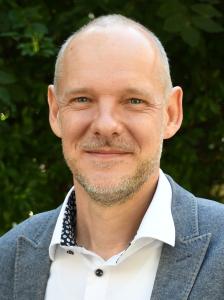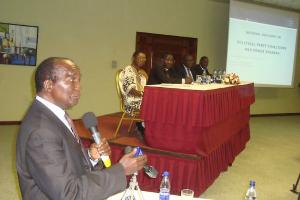Diskussion
Details
The Konrad-Adenauer Stiftung organised the national dialogue on party coalitions to provide a platform for forward-looking discussions among political actors as plans and strategies are drawn for 2011.
The following central questions were addressed:
1. How far is the current coalition between the opposition parties under the Inter-party Coalition (IPC) a timely and viable strategic step for those who aspire to deliver democratic political change in 2011?
2. How strategically effective is the decision by some opposition political parties not to join the IPC and still aspire for a victory in 2011?
3. Can a coalition between the NRM and any other party be considered a likely scenario? What would be the implications of such a scenario for multi-party politics in Uganda?
4. To what extent are concerns that Uganda might end in a power sharing deal similar to that of Zimbabwe or Kenya legitimate?
The discussion was led by a panel consisting of Prof. Aaron Mukwaya (Makerere University), Hon. John Kawanga (Democratic Party), Chris Opoka Okumu (Uganda People’s Congress) and Asuman Basalirwa (Justice Forum/Inter-party Coalition). Over 100 political leaders, media and civil society representatives, and academics, attended the dialogue. A vibrant debate emerged with contributions from distinguished guests including former DP President Dr. Paul Ssemwogerere, former Katikiro Daniel Muliika and Emmanuel Tumusiime (Forum for Integrity in Leadership), among many others.
Specific issues which dominated the debate included the different strategies of the IPC and the Uganda People's Congress (UPC) in campaigning for electoral reform and the political parties' lack of consolidated organisational structures at the grassroots level. Several contributors called for a broad-based 'national convention' cutting across politicians, religious organisations, civil society, pressure groups and ordinary citizens alike, to address fundamental issues of governance in Uganda and create a critical mass.





